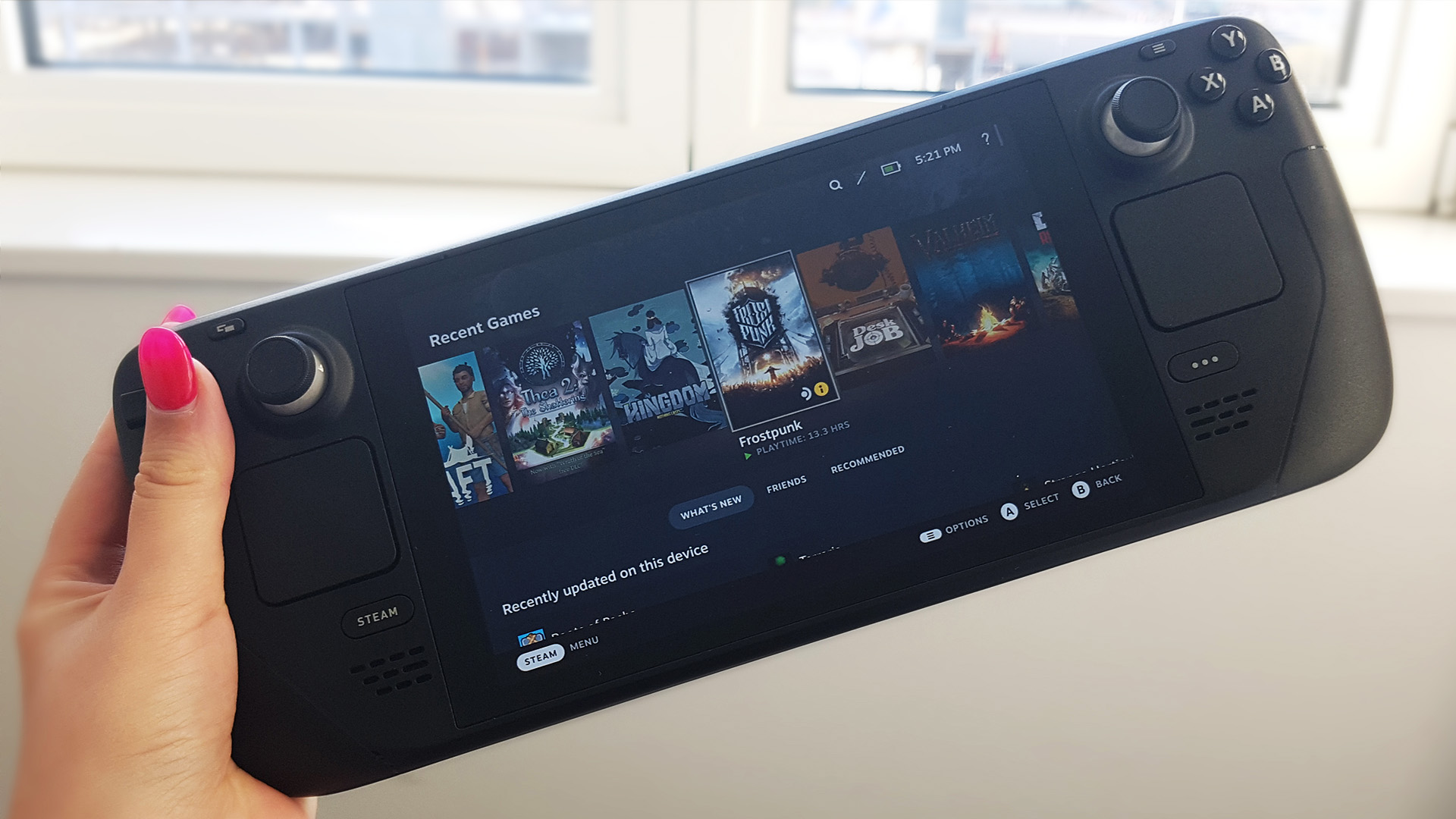Steam Deck users just got a great free upgrade
Say goodbye to rubbish internet connections ruining your portable gaming experience


I love my Steam Deck. I've only had it for a few weeks – I waited until the shortages were over before deciding to buy mine – and I've already destroyed my hands and my social life thanks to its go-anywhere, always-ready convenience. Because I hide it from my children I can always be sure it's charged when I want a quick game of Project Lazarus, which I'm spending more time with than I am with my kids. And a new update makes it even more useful.
As Valve posted on Twitter, you can now transfer games across your local network. It's currently in the Beta and Preview channels, but it'll be rolling out to everyone once it's fully finished. It's really useful if you use Steam on multiple devices, or if you have multiple Steam Decks in your household.
What do Steam Deck's local transfers actually do?
The new feature enables you to copy existing Steam game installations from one device to another: from PC to PC, or from PC to Steam Deck. That can be a big time saver, because in many cases you'll find that your local network transfers much more quickly than remote servers do – especially if you have a poor quality or congested internet connection. By keeping things local, the transfers are much faster.
Here's how Valve describes it.
"If a potential PC is found, your client will ask the Steam backend server to contact that other PC’s Steam client and start a game file transfer if local network transfers are enabled and possible. If the game file transfer is accepted, your PC will try to download as much content as possible from the other PC. If the connection is lost or no more content is available, Steam will fall back to use public Steam content servers to download the remainder."
In order to use the feature both devices need to be enrolled in the Steam Beta. You can find out more about how it works and how to use it on the Steam website.
Get all the latest news, reviews, deals and buying guides on gorgeous tech, home and active products from the T3 experts
Writer, musician and broadcaster Carrie Marshall has been covering technology since 1998 and is particularly interested in how tech can help us live our best lives. Her CV is a who’s who of magazines, newspapers, websites and radio programmes ranging from T3, Techradar and MacFormat to the BBC, Sunday Post and People’s Friend. Carrie has written more than a dozen books, ghost-wrote two more and co-wrote seven more books and a Radio 2 documentary series; her memoir, Carrie Kills A Man, was shortlisted for the British Book Awards. When she’s not scribbling, Carrie is the singer in Glaswegian rock band Unquiet Mind (unquietmindmusic).
